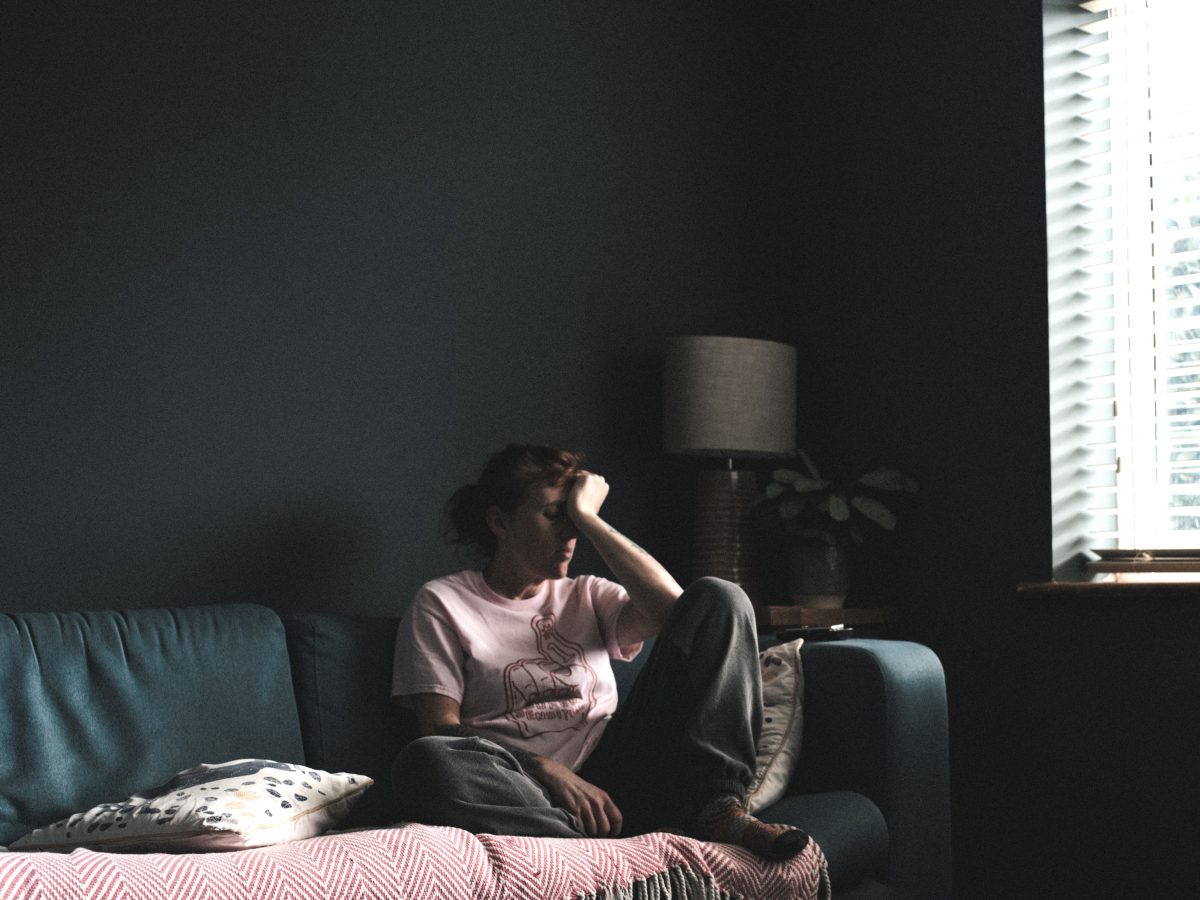'Sleep difficulties due to pandemic and lockdowns putting physical and mental health at risk’
- Expert warns of increase in number of people experiencing poor quality sleep
- Coeliac Awareness Week ‘Sleep Session’ to provide simple, practical, and effective advice
An increasing number of people are experiencing sleep difficulties due to stress, anxiety and changing lifestyle patterns brought on by COVID19 and the pandemic lockdowns.
That’s according to Health Scientist and Sleep Coach Tom Coleman, who says that people experiencing poor quality sleep are putting their physical and mental health at risk.
Mr Coleman will be speaking about the importance of sleep as part of Coeliac Awareness Week 2021, which runs from Monday 10th to Friday 14th May. His ‘Sleep Session’ will focus on the importance of sleep to the physiology of a healthy body and examine how mental wellbeing and emotional stability are regulated by the quality of sleep.
The health scientist and sleep coach will outline the many stress and physical triggers that cause disruption as well as providing simple, practical, and effective advice on how to regulate this most important aspect of living a healthy life.
Mr Coleman said: “Sleep is the ultimate act of self-care. Not a single aspect of physiology or psychology isn’t affected by sleep. When you’re asleep, your immune system is awake, the good bacteria in your gut is active, and your body is repairing the wear and tear of the previous day. These are all vital functions that are required to maintain a healthy body and mind, and they can only be achieved through good quality sleep.
“This is true for everyone but particularly for people suffering from auto-immune conditions such as coeliac disease or severe gluten intolerance. By the nature of their conditions, people with these conditions need to pay particular attention to their body’s ability to regulate their immune function and health in general.”
“Over the past 12 months I have witnessed a significant increase in people experiencing sleeping issues caused by the worry and anxiety of the COVID19 pandemic.
“We all should be spending roughly 36% of our lives asleep. But currently the levels of stress are high due to pandemic concerns, and the ‘always on’ nature of working from home and spending an increased amount of time on screens, particularly at night.
“People need to give themselves the opportunity to bring themselves down form this arousal continuum, to live in the now rather than constantly think about the future.”
Gill Brennan CEO of Coeliac Society Ireland said: “Coeliac Awareness Week will have lots of events focused on helping people take care of their nutritional health and mental wellbeing, as well as various activities that will be fun for all the family – including live cooking demonstrations, a kid’s corner, and a laughter yoga session.
“There are around 50,000 coeliac sufferers in Ireland, but as many as 37,000 are undiagnosed. These people are living with an untreated lifelong autoimmune condition, which can have a massive impact on their health. There are also over 400,000 people who are gluten intolerant.
“That’s why Coeliac Awareness Week is so important – it’s an opportunity for people with unexplained symptoms such as bloating, stomach pains, diarrhoea, constipation, anaemia and fatigue to ask, ‘Could it be gluten?’. The Coeliac Society can provide information about getting tested, diagnosed and start living a gluten free lifestyle.”
Find out more Coeliac Awareness Week, coeliac disease and living gluten free at the Coeliac Society of Ireland.
Top 10 tips for a good Night's sleep
Trying to stick to a routine when it comes to bed is really important. We should try go to bed at the same time and get up at the same time. When you stick to a regular sleep schedule, the brain learns unwind and relax when it’s time to go to bed.
Light plays a key role in regulating circadian rhythm, the body’s internal clock that tells us when we should be awake and when we should sleep. Morning light anchors our circadian rhythm and sets a timer for melatonin release later in the day. It also boosts our “cortisol activation response” which energises us for the day ahead.
Exercising has all round benefits for health. Both aerobic exercise and resistance exercise can improve sleep quality. Physical activity improves sleep quality, reduces wake episodes and shortens “sleep latency” – the time it takes to get to sleep. Remember that exercise can delay sleep, so ensure you leave about 3 hours between exercise and sleep time.
Nutrition is another fundamental role in our health. It is recommended to avoid large meals and spicy foods prior to bed. There are certain foods like whole grain and proteins both of these contain tryptophan which can increase the sleep hormone ‘melatonin’.
Monitoring and limiting your caffeine intake is important. Stimulants like coffee can have a negative impact on your sleep maintenance and quality. Alcohol is a sedative which sends signals to the brain and can also interfere with sleep quality and restoration. You should not drink coffee after 2pm and you should stop drinking alcohol 4 hours before bedtime.
While lowering sleep pressure can help with exhaustion, it can also make it difficult to fall asleep at night. People who have trouble falling or staying asleep at night should avoid naps. If napping is necessary, it is recommended that the nap length is 20 to 30 minutes and earlier on in the day, to avoid sleep disruption at bedtime.
Using electronic devices which give off blue light at night can disturb both the quantity and quality of sleep. This blue light emitted by technology devices impacts the natural production of the sleep hormone, melatonin, and can throw off circadian rhythm. By putting your phone down an hour to 40 minutes before going to bed can help improve sleep quality.
The temperature in your bedroom has a big impact on how well you sleep. The recommended temperature for your bedroom is 18-20 degrees Celsius. In the evening, our bodies are conditioned to feel a small drop in core temperature. Turning the thermostat down at night will help regulate your body’s temperature and signal that it is time to sleep.
Having a good night’s sleep depends on your bedroom environment. Creating a sleep-friendly bedroom atmosphere is an essential aspect of sleep hygiene that will help you get quality rest night after night. A decluttered bedroom with warm and appealing colours with an appealing layout can improve sleep quality.
Sleep problems are often caused by stress and anxiety. The stress response can be turned off by activating relaxation responses such as breathing techniques and visualization exercises, according to studies. By partaking in these it can help calm the mind and help ourselves drift off to natural sleep. Writing or keeping journals can help declutter and our mind and help us destress.



